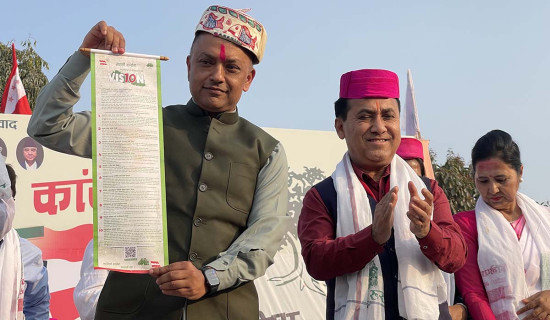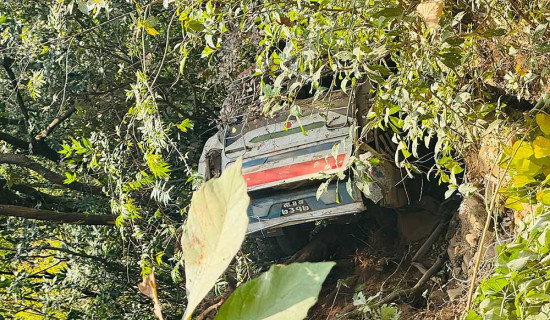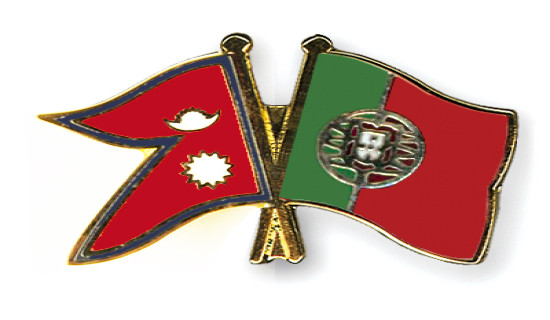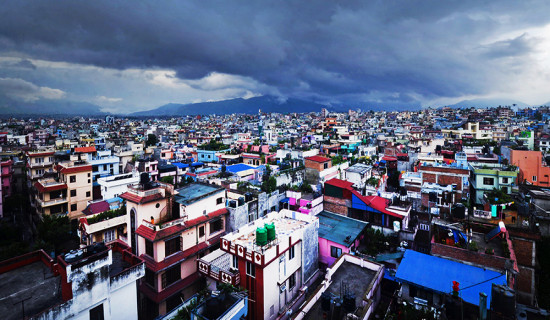- Thursday, 19 February 2026
Correct Information Key To Fair Polls
Ballav Dahal,
Free, impartial, and responsible media is one of the pillars of democracy as it enables people to make informed decisions during elections. Voters can elect honest, committed, capable and visionary leaders as their representatives only when the former is well-informed about the parties and their candidates.
There is no denying the fact that disseminating the right information at the right time through proper channels is required for empowering people to vote for the deserving candidates. When such representatives come to power, they could emerge as a change-maker by working as per the needs and aspirations of the common masses.
As Nepal is preparing for the second local elections on May 13 this year after the creation of the federal system of governance, the Election Commission (EC), other government bodies, and political parties have an important role to play in circulating all the electoral information in a more effective manner. Even amidst a rising literacy rate in the country, many people can still easily be misled by the spread of fake and distorted information.
Curbing fake message
Participants in the interaction on ‘Transmission of the Right Information in the Electoral Process’, which was organized by the National Information Commission recently, expressed the same concern. They emphasized the need for the government and the election body to remain vigilant against the possible dissemination of misinformation, disinformation, and mal-information and step up prompt measures accordingly.
The dissemination of the false messages is likely to misinform voters, which, in turn, could lead to the election of the wrong candidates. Thus, the spread of the proper information on time is vital for strengthening democracy. Only dedicated and visionary representatives could help deal with all the pertinent problems facing people and expedite the process of overall development at the local levels.
With the advancement of digital technology, there has been a growing use of social media platforms for disseminating electoral information worldwide. As people in Nepal have also better access to the internet, such social media platforms could be of immense use for spreading the poll information.
Those sites could be relatively cheap and efficient to disseminate election-related information and mobilize voters. Such sites facilitate candidates to better reach out to their voters and engage them in the poll campaigns. Since social media sites have turned out to be an important part of our day-to-day life, they could be used as the key channels for canvassing.
But such platforms need to be monitored properly in view of the higher chances of the fake information being transmitted. It is needless to mention that false information travels faster than the truth. The spread of such information may be detrimental to a free and fair election.
The use of social media sites can cause misrepresentation of accurate voter information in regard to voting methods, location and time. There are also chances of voter frauds, provocation for violence and spreading of hate speech. Another possible risk is related to online harassment of women candidates. Taking all this into serious consideration, the EC seems to have remained watchful against the probable misuse of social media during the local polls.
Local elections are very significant in the sense that they contribute to strengthening the grassroots democracy. The Constitution of Nepal, 2015 upholds the importance of the local government, which is directly associated with the people. So, the local government institutions are considered the foundation of democracy. It can be easier for the state mechanisms to take the benefits of democracy to the people when the local government is vibrant and capable enough to carry out its responsibilities well.
The formation of a responsible, accountable and transparent local government is possible only through fair elections. With increasing security threats, conducting such polls is quite challenging.
What is another worrisome matter is that the country has witnessed a considerable increase in election expenses over the years. Even several top leaders belonging to different political parties have realized this. If this type of unwelcome trend continues, all the elections — be it local, provincial or federal — may become so expensive that only well-off candidates could afford to contest them. When money becomes dominant in elections, it can create a lot of political anomalies.
Poll code
To check such problems, the EC has fixed a ceiling of expenses for those vying for different positions of the local government such as mayor, deputy mayor, ward chairpersons, and ward members (in metropolis, sub-metropolis, and municipalities) and chairman, deputy chairperson, war chairperson and ward members (in rural municipalities). The election body has also implemented a code of conduct for the political parties and the concerned candidates when it comes to poll expenses and other election-related activities.
In addition, the EC’s poll code comes into effect even for the government, its ministers, public institutions, local levels, poll observers, civil servants, security agencies, media outlets, and those holding public positions.
As part of the election process, the code of conduct, if followed strictly, could be helpful for holding the upcoming local polls in a free, fair, and fearless environment. The EC needs to ensure that all the stakeholders abide by the code of conduct in letter and spirit in order to perform its important responsibility of conducting the local polls in a dignified manner. Only then can genuine representatives make it to the local government institutions.
(Dahal is Deputy Executive Editor of this daily.ballav.dahal@gmail.com)










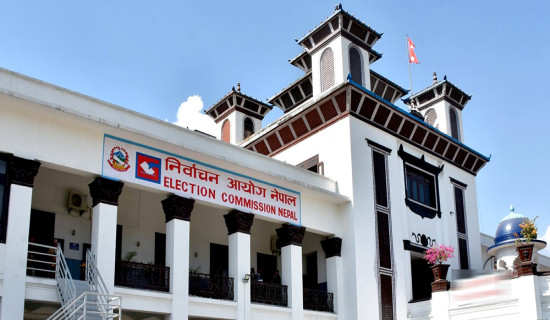
-original-thumb.jpg)

